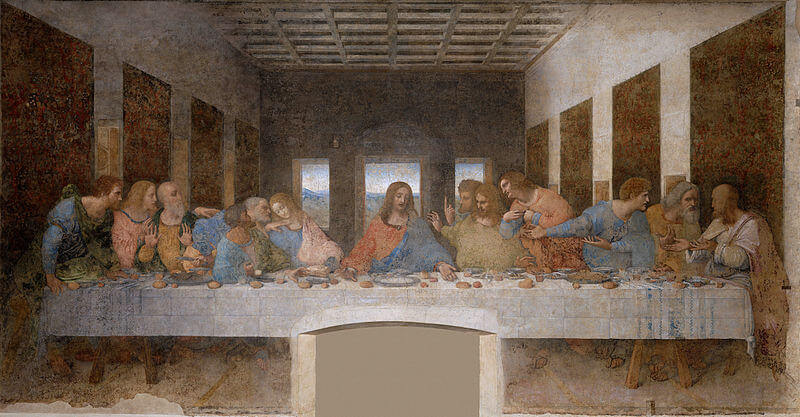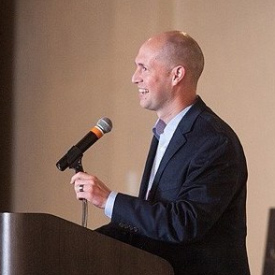How Will This Change Us?

The 14th century was a time of great suffering. The Hundred Years’ War between England and France ravaged both countries and provided a tremendous sense of instability to the whole of Europe. Strange weather patterns led to crop devastation which, in turn, led to widespread famine in some parts of the continent. Many believe the famine so weakened the constitution of Europeans that, when the Black Death arrived, their bodies stood little chance of fighting it off. Initially reaching Italian ports in 1348, the plague killed roughly one-third to one-half of Europe’s population, creeping along trade routes and striking urban areas most severely, carried by flea-infested rats from the ropes and cargo of ships.
One chronicler of the time wrote, “In their bones they bore so virulent a disease that anyone who only spike to them was seized by a mortal illness and in no manner could evade death.” The disease took three main forms: bubonic, pneumonic, and septicemic, and each of them brought on different symptoms. While some who contracted the disease recovered, most of its victims died within a few days.
It is fair to say, these were among the darkest times in human history. Yet, out of those times came the Renaissance (literally, “rebirth”) – a period of recovery from the death, destruction, and war of the 14th century. The Renaissance extended roughly from 1350-1550 and was marked by some of the most magnificent and enduring works of art, architecture, technology, and literature ever created.
Da Vinci’s Mona Lisa and The Last Supper, Michelangelo’s Creation of Adam and Statue of David, Botticelli’s Birth of Venus were all completed during this time of rebirth. Mathematical and scientific study led to advances like the expansive domes of Brunelleschi, the astronomical discoveries of Galileo and Copernicus. Additionally, the explorations of Columbus, Vespucci, Magellan, and others were made possible.
And while some Christians critique the Renaissance as a time of return to Greco-Roman paganism, it was nonetheless a time of recovery for the Church as well. Monasteries were ravaged by the Black Death and scores of priests died from the plague because they stayed to minister to the sick. The Renaissance saw the recovery of ancient texts and the refilling of monasteries and churches, not to mention the invention of Gutenberg’s printing press, which allowed the Scriptures (and other important works, of course) to be copied. It is true that many Renaissance thinkers erred into pagan thought, but that was by no means the universal experience or practice.
Man was not created to die. Being made in God’s image, eternal life is woven into our desires. We want to live. Death is an intruder, an enemy, and as such, we partly fear and partly rebel against it. So, when the Black Death brought about such vast destruction, the response was “rebirth.” Doubtless, many succumbed to the despair of their times, but many more commenced the hard work of rebuilding.
The New Testament sheds light on this struggle. The words “temptation” and “trial” are from the same Greek root word. For example, Matthew 4:1 says, “Then Jesus was led up by the Spirit into the wilderness to be tempted by the devil.” James 1:2-3 says, “Count it all joy, my brothers, when you meet trials of various kinds, for you know that the testing of your faith produces steadfastness.” The words “tempted” in Matthew 4:1 and “trials” in James 1:2 are from the same root. Every temptation is also an opportunity to obey. Our Lord instructed us to pray that we would not be led into temptation, but rather delivered from evil (or the evil one). We pray that we will respond to trials with obedience.
Returning to our historical example, let us pray for Renaissance/rebirth out of the Black Death. Though the times before us pale in comparison to the 14th century, they are nonetheless uncertain, frightening, and difficult. In these moments, as with every temptation, we can descend into anxiety and despair, or we can grow in obedience and trust.
Will we have a “renaissance” when the social distancing is done and the “shelter in place” orders are no more? Other than never getting low on toilet paper again, what lessons will we take with us?
Will the lessons be lost on us, or will we rise from it with greater love for our God and neighbor? Will we use this time to better love our families? Will our physical absence from the Church make our hearts grow fonder?
Will the sudden opportunity to homeschool bless schools with parents who have a renewed love for cultivating wisdom and virtue in their children? Will having our children at home cause us to draw them closer still?
Will we see our current trials as an opportunity and become better? Or will we simply be content when our comfort is restored and our stability returned?

Brian Phillips
Dr. Brian Phillips serves as a pastor in Concord, NC, where he lives with his wife and their four children.










